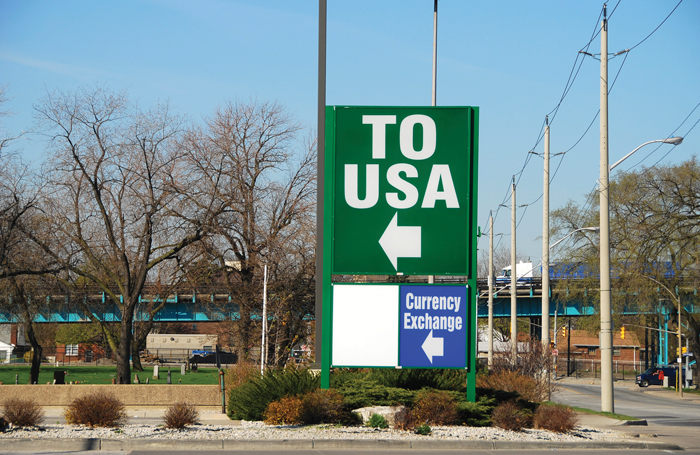It goes without saying tensions are running high in the agricultural community right now.
Early reports from the fall calf run indicate prices this year could actually be worse than when the border closed in 2003. The main culprits appear to be the languishing U. S. dollar, which is bringing the loonie closer to par, along with country-of-origin labelling effects and flat meat consumption due to the recession.
Flax growers, many of whom still have flax in the field, don’t have much incentive right now to go after it. Sales to the EU, which account for 70 per cent of this country’s flax exports, are on hold indefinitely after trace amounts of a genetically modified variety started showing up.
Read Also

Canada’s Grocery Code of Conduct just window dressing
The voluntary nature of Canada’s Grocery Code of Conduct robs it of effectiveness and won’t result in the food system accountability that’s needed.
Canola producers are facing similar uncertainties after the U. S. has started blocking shipments of canola meal containing salmonella, and China served notice last week it won’t accept shipments if it finds blackleg spores on the seed.
And the hog sector, well, what more can be said about that one?
Markets are uncertain. Costs are high. Break even is a hope and profits are a dream.
We’re not in a position to tell producers what they should do in
circumstances like these, but here’s a few examples of actions that are unlikely to help – and which might even cause more harm.
Blaming the neighbours: At least some producers in the cattle business reportedly think their pension-collecting neighbours represent unfair competition. If they quit, the cattle herd might shrink enough that profitability could return to the sector, or so the theory goes. “Do you want to go to a local community centre where it’s just you and four neighbours having a dance?” asked one frustrated producer after seeing his top calves sell for slightly less than break-even.
Mathematically speaking, convincing more people to leave rural communities is unlikely to improve numbers gathering at the community club. Those same pension cheques are helping to support that too. We’ve been clearing people out of rural areas for a few generations now and profitability continues to be elusive. Maybe a new strategy is in order.
Besides, this producer might get his wish soon enough. Federal statistics indicate one-third of Canada’s farmers controlling more than half of the farm assets will retire within the next 15 years. One suspects a few would leave tomorrow if they thought they could recoup their investment.
But before they go, their younger neighbours might want to spend a few hours tapping into their wisdom. Those seniors have seen hard times before and the fact they’re still here to talk about it says something about their management skills; they’ve earned their grey hairs – and their pension cheques.
Blaming the provincial government: It’s somewhat ironic that the former leader of the government some farmers have recently characterized as the “worst ever” for agriculture is now charged with representing these same farmers on key issues – namely COOL – in Washington. Most farmers in this province didn’t vote for Gary Doer, but like him or not, he is now their chief lobbyist with their most important customer. Manitoba’s NDP government was soundly chastised at a recent Keystone Agricultural Producers meeting for “only being interested in its voting base, which is in Winnipeg.”
It’s fair game to criticize a government’s policies such as the infamous Bill 19 hog barn moratorium, which we agree will do little to improve the environment and which limits the industry’s ability to reinvest so it can adapt.
But the hog industry would be in trouble with or without Bill 19. And the industry’s problems go much deeper than partisan politics at the provincial level. It’s an unfortunate fact that any government that leads this province will see its fortunes rise or fall based on its popularity among Winnipeg voters. Other parties that hope to unseat the NDP will have to be even more willing to appease those interests in order to get elected in the first place.
The bottom line? If farmers position themselves, or allow themselves to be positioned – on issues that pit urban against rural, or farmers against non-farmers, they are destined to lose, regardless of the political stripe in power.
In order to be successful, farmers and the organizations that represent them must come up with policies that not only support agriculture but which can also be sold as beneficial to non-agricultural interests.
Blaming the customer: Whether it’s concerns over genetically modified crops, animal welfare or food safety, telling the customers they are wrong, unreasonable, or worse – unqualified to have an opinion, is unlikely to improve the situation.
In times like these, farmers need to stick together, but not by “circling the wagons” like in those old Western movies. Now is a time when farmers need to be collectively reaching out for new perspectives on how to fix what’s broken in their sectors – not looking for scapegoats. [email protected]



















